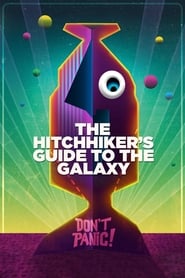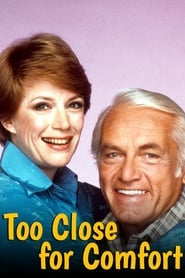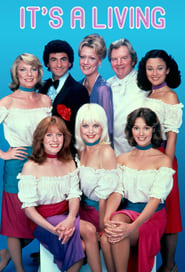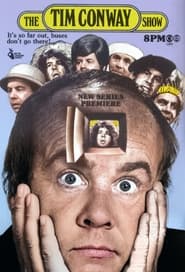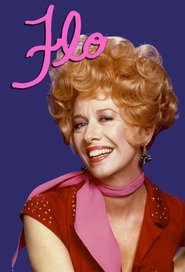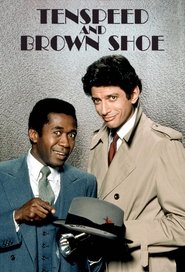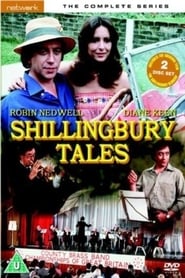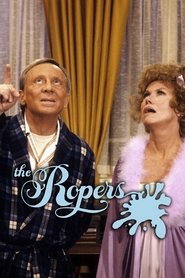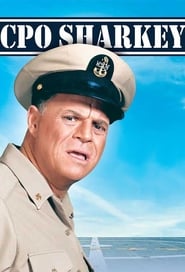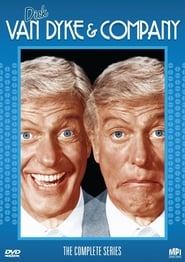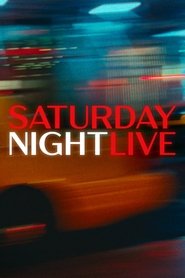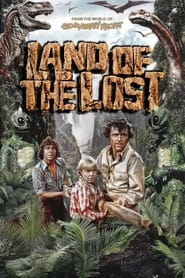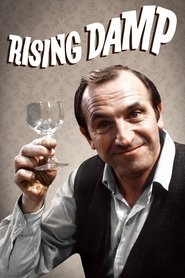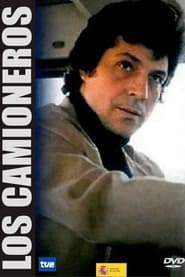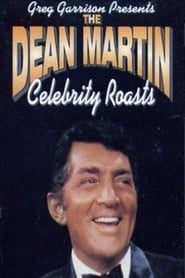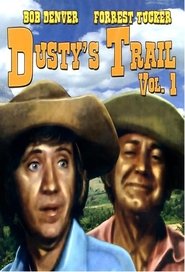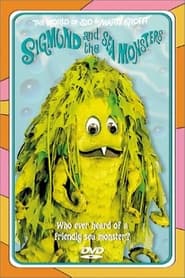New Comedy TV Series on Free Services - Page 49
-
The Hitchhiker's Guide to the Galaxy
1981
star 8.1Don't Panic! The story of Arthur Dent, an average Englishman who life was spared by his friend, who turned out to be an alien, while the planet Earth is destroyed. His friend tells him about the Hitchhiker's Guide to the Galaxy, a guide with anything you ever needed, and wanted to know. They travel across the galaxy, meeting friendly, and not so friendly characters in order to find the great question (the answer being 42). -
Too Close for Comfort
1980
star 6.3Too Close for Comfort is an American television sitcom which ran on the ABC network from November 11, 1980 until May 5, 1983, and in first-run syndication from April 7, 1984 until September 27, 1986. It was modeled after the British series Keep It in the Family, which premiered nine months before Too Close for Comfort debuted in the U.S. Its name was changed to The Ted Knight Show when the show was retooled for its final season. -
It's a Living
1980
It's a Living
1980
star 5.7It's a Living is an American sitcom set in a restaurant at the top of the Bonaventure Hotel in Los Angeles. The show aired on ABC from October 30, 1980 until June 11, 1982. After the series was cancelled, new episodes aired in first-run syndication from September 28, 1985 to April 8, 1989. The series was created by Stu Silver, Dick Clair and Jenna McMahon, and produced by Witt/Thomas Productions, later in association with Golden West Television and Lorimar-Telepictures. -
The Tim Conway Show
1980
The Tim Conway Show
1980
star 7.5A variety/sketch comedy television series. Tim Conway hosted a variety show so closely modeled on the successful Carol Burnett Show, even using some of the same sketches. Interpersed were dance routines where all the performers were youngsters and musical numbers. -
Flo
1980
Flo
1980
star 5Flo is an American sitcom which aired on CBS from 1980 to 1981. The series is a spin-off for Polly Holliday who portrayed the sassy and street-smart waitress Florence Jean "Flo" Castleberry on the sitcom Alice. Flo was cancelled at the end of its second season. -
Tenspeed and Brown Shoe
1980
star 6.8Tenspeed and Brown Shoe is an American detective/comedy series originally broadcast by the ABC network between January and June 1980. The series was created and executive produced by Stephen J. Cannell. -
Shillingbury Tales
1980
Shillingbury Tales
1980
star 6.8Shillingbury Tales was a British television sitcom comedy-drama series made by ATV for ITV and broadcast 1980-81. Comprising a single feature length pilot and six one-hour episodes, the series deals with life in an idealised fictional English village and stars Robin Nedwell, Diane Keen, Nigel Lambert, Jack Douglas, John Le Mesurier, Bernard Cribbins and Trevor Howard. It was preceded by a feature length pilot episode The Shillingbury Blowers starring Trevor Howard, broadcast 6 January 1980 The series was written by Francis Essex and directed by Val Guest. Unusually for a British situation-comedy at that time it was recorded entirely on location on 16mm film and consequently there was no laughter track. Much of the filming took place in the village of Aldbury in Hertfordshire. The show ended when ATV lost their licence to broadcast and their replacement Central declined to continue production of the series. The series was broadcast in a number of countries around Europe. -
The Ropers
1979
The Ropers
1979
star 5.9The Ropers is an American sitcom that ran from March 13, 1979 to May 22, 1980 on ABC. The series is a spin-off of Three's Company and based on the British sitcom George and Mildred. The series focused on middle-aged couple Stanley and Helen Roper who were landlords to Jack, Janet, and Chrissy on Three's Company. As was the case during their time on Three's Company, opening credits for The Ropers exist with either Audra Lindley or Norman Fell credited first. -
C.P.O. Sharkey
1976
C.P.O. Sharkey
1976
star 6.8C.P.O. Sharkey is an American sitcom which aired from 1976 to 1978 on NBC. -
Stay Tuned
1976
Stay Tuned
1976
star 6Stay Tuned was a Canadian improvised comedy television series broadcast on CBC Television throughout October 1976. -
Van Dyke and Company
1975
Van Dyke and Company
1975
star 5Short-lived variety show starring Dick Van Dyke and assorted guests. The show was best known for Dick's pantomime acting and a recurring skit about the dumbest family in the world, coincidently named "The Bright Family". Van Dyke & Co also featured appearances by the Los Angeles Mime Company. -
Saturday Night Live
1975
Saturday Night Live
1975
star 7A late-night live television sketch comedy and variety show created by Lorne Michaels. The show's comedy sketches, which parody contemporary culture and politics, are performed by a large and varying cast of repertory and newer cast members. Each episode is hosted by a celebrity guest, who usually delivers an opening monologue and performs in sketches with the cast, and features performances by a musical guest. -
Far Out Space Nuts
1975
Far Out Space Nuts
1975
star 5Far Out Space Nuts is a Sid and Marty Krofft children's television series that aired in 1975 for one season, and produced 15 episodes. It was one of only two Krofft series produced exclusively for CBS. Like most children's television shows of the era, Far Out Space Nuts contained a laugh track. Like most of the Kroffts' productions, the show's opening sequence provides the setup of its fanciful premise: While loading food into various compartments to prepare a rocket for an upcoming mission, Barney instructs Junior to hit the "lunch" button, but Junior mistakenly hits the "launch" button. The rocket blasts off and takes them on various misadventures on alien planets. The show starred Bob Denver as Junior, a seemingly dim-witted but uniquely clever maintenance worker employed by NASA, and Chuck McCann as Barney, his grumpy, short-tempered co-worker. Patty Maloney played Honk, their furry friend who made horn sounds instead of speaking. -
Land of the Lost
1974
Land of the Lost
1974
star 7.1Rick Marshall and his children Will and Holly are on a weekend expedition rafting down a river when an enormous earthquake diverts them to an eclectic alien world inhabited by dinosaurs, chimpanzee-like cavemen called Pakuni, and aggressive, humanoid lizard creatures called Sleestak. -
Rising Damp
1974
Rising Damp
1974
star 7.5Set in a seedy bedsit, the cowardly landlord Rigsby has his conceits debunked by his long suffering tenants. -
Los camioneros
1973
-
The Dean Martin Celebrity Roasts
1973
star 5.4The Dean Martin Celebrity Roasts is a NBC television special show hosted by entertainer Dean Martin from 1974 to 1984. For a series of 54 specials and shows, Martin would periodically "roast" a celebrity. These roasts were patterned after the roasts held at the New York Friars' Club in New York City. The format would have the celebrity guest seated at a banquet table, and one by one the guest of honor was affectionately chided or insulted about his career by his fellow celebrity friends. In 1973, The Dean Martin Show was declining in popularity. The final season of his variety show would be retooled into one of celebrity roasts, requiring less of Martin's involvement. For the 1973–1974 season, a new feature called “Man of the Week Celebrity Roast" was added to try to pick up the ratings. The roasts seemed to be popular among television audiences and are often marketed in post-issues as part of the official Dean Martin Celebrity Roasts and not The Dean Martin Show. After The Dean Martin Show was cancell -
Dusty's Trail
1973
Dusty's Trail
1973
star 5Dusty's Trail is an American Western/comedy series that aired in syndication from September 1973 to March 1974 starring Bob Denver and Forrest Tucker. The series is a western-themed reworking of Gilligan's Island. The series, set in the latter 19th century, is about a small, diverse cluster of lost travelers, who become separated from their wagon train. -
Sigmund and the Sea Monsters
1973
star 5.4Sigmund and the Sea Monsters was an American children's television series that ran from 1973 to 1975, produced by Sid and Marty Krofft and aired on Saturday mornings. There were 29 episodes spanning two seasons. -
The Essential Lectures of Alan Watts
1972
star 10The Essential Lectures of Alan Watts video series was recorded in 1971 above Muir Woods, California, and in 1972 aboard the ferryboat the SS Vallejo in Sausalito. Produced by his son Mark and directed by long-time archivist Henry Jacobs, the series explores core philosophical themes that spawned over Watts' career.
 Netflix
Netflix
 Amazon Prime Video
Amazon Prime Video
 Apple iTunes
Apple iTunes
 Apple TV Plus
Apple TV Plus
 Disney Plus
Disney Plus
 Google Play Movies
Google Play Movies
 Paramount Plus
Paramount Plus
 Hulu
Hulu
 HBO Max
HBO Max
 YouTube
YouTube
 fuboTV
fuboTV
 Peacock
Peacock
 Peacock Premium
Peacock Premium
 Amazon Video
Amazon Video
 The Roku Channel
The Roku Channel
 AMC+
AMC+
 Kocowa
Kocowa
 Hoopla
Hoopla
 The CW
The CW
 Vudu
Vudu
 Starz
Starz
 Showtime
Showtime
 PBS
PBS
 Pantaflix
Pantaflix
 FXNow
FXNow
 Tubi TV
Tubi TV
 Kanopy
Kanopy
 Comedy Central
Comedy Central
 Crunchyroll
Crunchyroll
 Microsoft Store
Microsoft Store
 Redbox
Redbox
 Sun Nxt
Sun Nxt
 ABC
ABC
 DIRECTV
DIRECTV
 Crackle
Crackle
 Fandor
Fandor
 Plex
Plex
